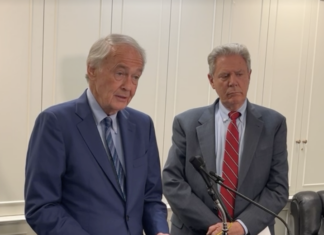WASHINGTON (Washington Post) — In a new twist to efforts to call attention to the Armenian Genocide, a group of lawmakers has accused the Obama administration of blocking a Smithsonian display of a rug woven by orphans of the mass killings nearly a century ago.
The lawmakers wrote to President Obama urging him to make the rug available for exhibition. It was presented to President Calvin Coolidge in 1925 and has been in storage. The bipartisan group includes more than a dozen representatives from California, which has a large Armenian American population.
The roughly 12-foot-by-18-foot Armenian Orphan Rug was to be featured in a Washington exhibit Dec. 16 at the Smithsonian Institution Building, known as the Castle, that sought to call attention to a new book about the rug, which the lawmakers called a “pivotal icon related to the Armenian Genocide.”
A White House spokeswoman said Tuesday that displaying the rug “for only half a day in connection with a private book launch event, as proposed, would have been an inappropriate use of US government property, would have required the White House to undertake the risk of transporting the rug for limited public exposure, and was not viewed as commensurate with the rug’s historical significance.
Aram S. Hamparian, executive director of the Armenian National Committee of America, attributed the decision to politics, contending that the administration was “catering to the Turkish government’s sensitivities about the Armenian genocide.”








